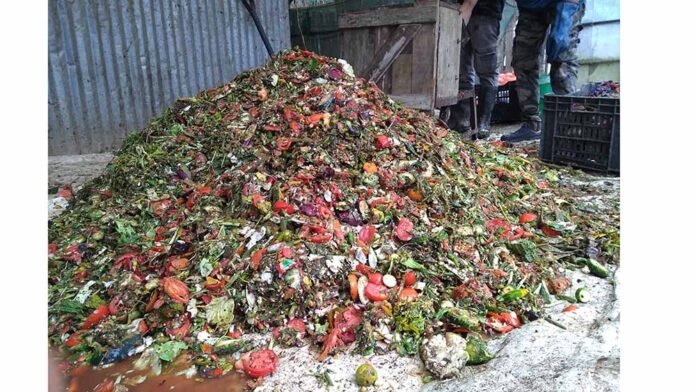Mokokchung Town, home to approximately 1,36,743 residents, generates around 13.5 metric tons of waste daily. Of this, nearly 9% is segregated organic waste, largely from vegetable and fruit vendors in bustling market areas. Improper disposal of this organic waste has been a persistent challenge, causing environmental and health hazards such as soil and water pollution, methane emissions, and the spread of disease vectors like flies and rats. Moreover, open dumping creates unsightly, unhygienic landfill sites that impact local communities negatively.
According to a press note by Arenla Tzudir, addressing these issues often involves costly clean-up operations, treatment procedures, and healthcare expenses. Against this backdrop, the pioneering efforts of two young entrepreneurs, Sungtiyala Jamir and Watimenla Imsong, stand out as a beacon of hope.
Both students pursuing their Master’s degrees in English at the University of Pune, Jamir and Imsong dreamed of contributing positively to their home state after their studies. Their vision took shape with the founding of Green Heap Enterprise, an innovative venture dedicated to organic waste management — a relatively new concept in Nagaland.
On March 30, 2021, Green Heap Enterprise signed a Memorandum of Understanding (MoU) with the Mokokchung Municipal Council (MMC), facilitated by then ADC and Administrator Shashank Pratap Singh, to lease the former MMC landfill site at Tzumendang, Ungma.
Since then, Green Heap has been actively collecting organic waste from the New Market area, MMC Complex, and Old Town Hall vicinity. Daily collections range between 400 to 500 kilograms, with summer months seeing a spike in volume. The enterprise relies on a single Maruti van for transport, which sometimes requires multiple trips to manage the load.
The collected waste undergoes manual processing, including chopping into smaller pieces using a locally made machine, before being placed in composting pits. This composting process takes about five months to mature, after which the compost is sieved, packed, and prepared for sale. To date, Green Heap has recycled an impressive 279 tons of organic waste that would otherwise have burdened the MMC landfill.
Scientific testing conducted in laboratories outside Nagaland has confirmed that the compost is safe and effective for agricultural and gardening purposes. However, the enterprise faces significant challenges, including a lack of machinery and infrastructure, which slows down operations and limits the volume of waste processed.
Despite these hurdles, the founders have self-funded the entire operation, demonstrating remarkable commitment to environmental sustainability and community well-being.
Mokokchung, located in the ecologically sensitive Indian Himalayan Region, is rich in biodiversity but faces growing pressures from population increase, urbanization, and developmental activities. Sustainable waste management facilities like Green Heap Enterprise are thus crucial to protecting the area’s natural resources.
The success of such initiatives, however, hinges on active community participation and strong government backing. Community involvement fosters environmental awareness, encourages behavioral change, and creates a sense of ownership.
Meanwhile, they acknowledged that government support was vital for infrastructure development, funding, and policy formulation to build a resilient waste management system.
(Note: Population figures sourced from the Electoral Roll; waste generation data provided by Mokokchung Municipal Council.)
Green Heap Enterprise tackles organic waste crisis in Mokokchung
DIMAPUR

